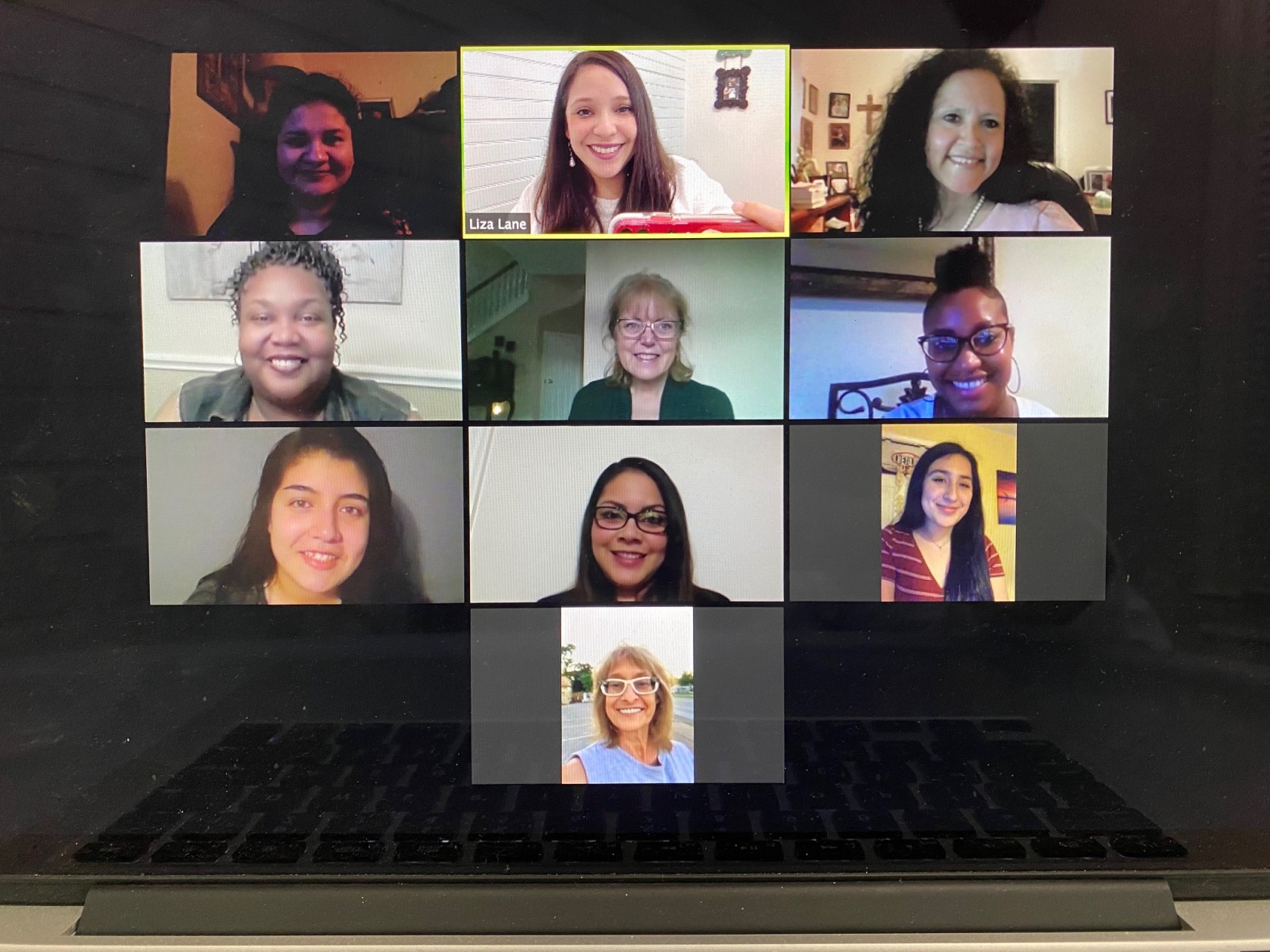Social Work Faculty, Students Create Online Support Groups in Response to COVID-19
By Mike Emery
The Coronavirus (COVID-19) has left many Houstonians anxious, uncertain and concerned to say the least. And, the recent Stay at Home order is keeping many friends and family members apart.
Leave it to the resourceful minds at the University of Houston-Downtown’s Social Work Program (based within the College of Public Service) to help community members connect with each other and cope with the extraordinary circumstances surrounding COVID-19. The faculty-student group UHD Solidarity Circles (@UHDSolidarityCircles on Instagram) is providing UHD students and Houstonians online outlets to discuss their concerns and explore creative methods of coping with COVID-19.
Solidarity Circles was founded under the guidance of assistant professor Dr. Liza Barros Lane with support from Dr. Dana Smith (who directs field studies). Veteran practitioner Leslie Sirrianni also played an essential role in the Solidarity Circles’ formation, contributing her experience and insights to students. The group began developing its online support groups in early March as the spread of COVID-19 escalated.
“It became clear that we would need to find a way to support each other during this COVID19 pandemic,” Lane said.
Currently, online support sessions can be accessed through live Zoom sessions, and subject matter varies from group to group. One group uses art as a way of expressing feelings and communicating and another is aimed at parents and their children with bilingual activities. Others include a support group for medically vulnerable populations and even a fun Monday karaoke group to brighten people’s days.
During the art group sessions, student (and artist) Bendy Rios-Lazo leads online participants through creative exercises and conversation to help cope with the situation. Participants create their own artwork using whatever tools (pen, paper, pencil) are on hand and show them to the group.
According to Rios-Lazo, one participant drew a hot air balloon surrounded by clouds. The piece, she said, wasn’t colorful nor detailed. Still, it captured her feelings regarding social distancing and the pandemic.
“She wanted it to be imperfect,” Rios-Lazo said. “She wanted to create something that wasn’t overly bright or clean to show how this situation was affecting her.”
Although participants might not be trained artists, the process of expressing feelings through drawings or artwork can be very therapeutic, Rios-Lazo added.
“Drawing and being creative also allows people to focus their energies on something other than being at home or worrying about the virus,” she said.
In addition to helping UHD students and community members cope with COVID-19, the process of hosting these virtual support groups is excellent preparation for future licensed social workers.
“The values of social work consist of service, social justice, dignity and worth of the person, importance of human relationships, integrity, and competence,” Lane said. “It’s one thing to learn about social work in class, but quite another to put it into practice. Work in the field is the signature pedagogy of social work education. It’s where we ‘practice what we teach,’ one of our program’s mottos. Our students are trained and given the opportunity to work out these values in their internships … or in this case, through these online support groups.”
Solidarity Circles was inspired by the recent text written by UHD professor Dr. Dawn McCarty, “Solidarity Social Work Practice: Serving New Immigrant Populations.” The participating students apply social work principles outlined in the text.
“We can only do successful work with clients when we give them the dignity and respect of receiving their wisdom for their own lives, receiving their support to do our work in a professional context, and prizing the relationship with them above everything else,” Lane said. “This is what is described by Dr. McCarty in her book.”
Although the group came together in response to COVID-19, Solidarity Circles will continue long after this crisis passes, Lane said. As long as Houstonians need a helping hand, the group will continue to support them through the expertise and energy of both faculty and students.
“I made it clear to students in the group that we all were co-creating a program in which we shared ownership,” Lane said. “This is truly a team effort, and we are going to continue Solidarity Circles as part of the work we do with students in the Bachelor of Social Work program.”
A schedule of Solidarity Circles support groups is available here.
The University of Houston-Downtown (UHD) is the second-largest university in Houston and has served the educational needs of the nation’s fourth-largest city since 1974. As one of four distinct public universities in the University of Houston System, UHD is a comprehensive, four-year university led by President Loren J. Blanchard. Annually, UHD educates approximately 14,000 students, boasts more than 66,000 alumni, and offers 45 bachelor’s degrees, 12 master’s degrees, and 19 online programs within four colleges: Marilyn Davies College of Business, College of Humanities and Social Sciences, College of Public Service, and College of Sciences and Technology. UHD has one of the lowest tuition rates in Texas.
U.S. News and World Report ranked UHD among the nation’s Best Online Bachelor’s Programs for Applied Administration and Best Online Master’s Programs in Criminal Justice, as well as a Top Performer in Social Mobility. The Wall Street Journal/College Pulse ranked UHD one of the best colleges in the U.S. for its 2024 rankings, with notable distinctions: No. 1 for diversity (tied) and No. 3 for student experience. The University is designated as a Hispanic-Serving Institution, a Minority-Serving Institution, and a Military Friendly School. For more information on the University of Houston-Downtown, visit uhd.edu.

